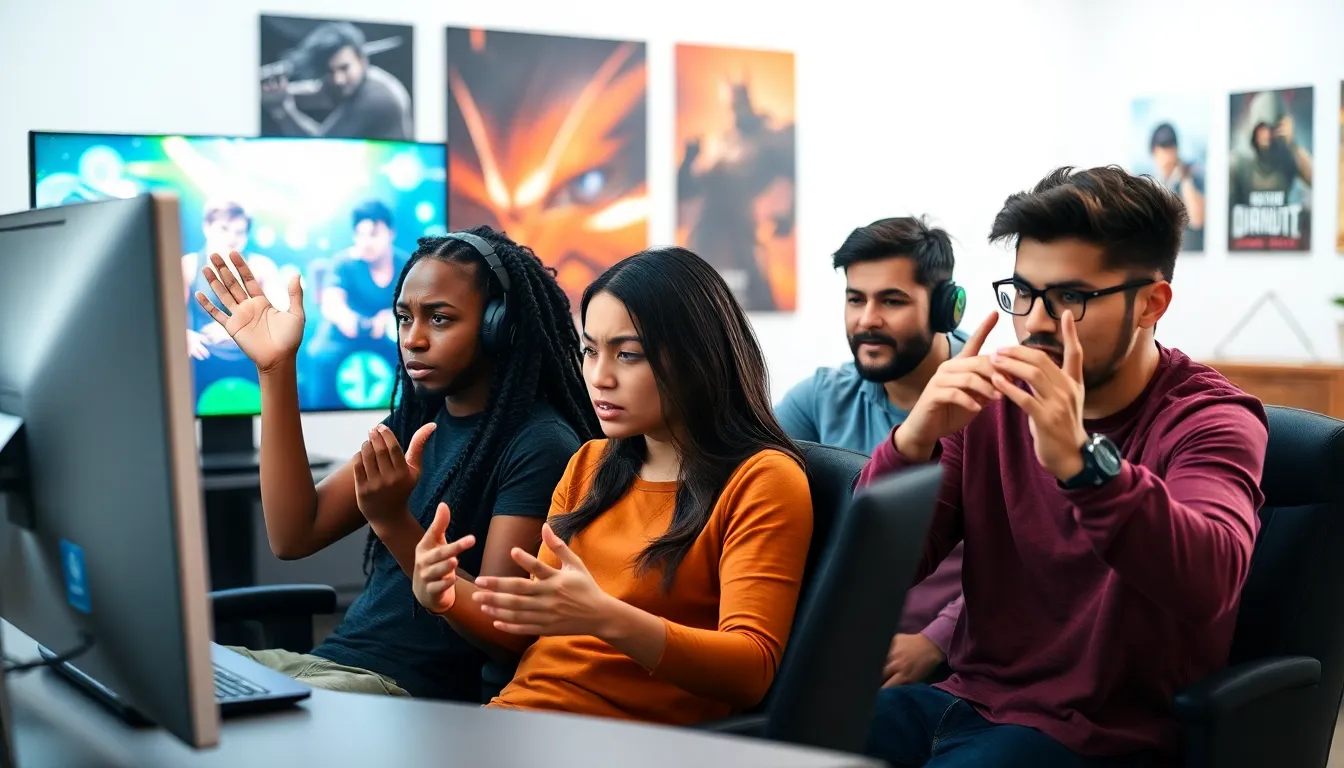The Best Fluffy Pancakes recipe you will fall in love with. Full of tips and tricks to help you make the best pancakes.

Toxic Gaming Community: Understanding the Phenomenon
Welcome to the wild world of gaming, where the thrill of victory is often accompanied by the agony of a toxic community. Ever been called a noob just because you missed that headshot? Or faced a barrage of insults for daring to play a character that isn’t meta? Strap in because today, we’re diving deep into the murky waters of the toxic gaming community. We’ll explore its roots, its effects, and how we can all work together to make gaming a more enjoyable experience for everyone. Spoiler alert: It involves a lot of blocking out the haters and maybe a little bit of empathy.
Toxic Gaming Community

Toxicity in gaming culture can often feel like a player throwing a grenade into a peaceful chat room: it disrupts, damages, and sometimes, it even leads to a complete shutdown. But what exactly does it mean to be toxic in this context? In simple terms, it refers to behaviors that create a hostile or unwelcoming environment for others.
Common Behaviors That Indicate Toxicity
Several behaviors characterize a toxic gaming environment. Name-calling, harassment, or excessive trash-talking during gameplay can easily sour the experience. Deliberately sabotaging a teammate’s gameplay or mocking someone for their in-game choices is another glaring sign of toxicity. Also, gatekeeping, where established gamers belittle newcomers for not knowing specific game mechanics, further adds to the toxicity. It’s like trying to join a secret society but being told you’re not worthy because you don’t know the handshake. Eventually, these toxic behaviors can turn a fun and uplifting gaming session into an ordeal.
Impact of Toxicity on Players and Communities
The effects of toxicity in gaming extend far beyond the individual player. When toxicity runs rampant, it damages the entire community, creating an atmosphere where players feel unsupported and demotivated.
Mental Health Effects on Gamers
On a personal level, exposure to toxicity can significantly affect a gamer’s mental health. Studies show that prolonged exposure to toxic environments can lead to increased anxiety, depression, and feelings of isolation. Imagine logging in to escape from reality, only to be bombarded with negativity, it’s no wonder many players feel discouraged or burned out.
Consequences for Gaming Communities
The overall consequences for gaming communities can be devastating. When toxicity is normalized, it creates a culture that encourages more negativity. So, this can lead to dwindling player numbers as gamers opt for healthier environments elsewhere. A thriving community can quickly turn into a ghost town, where only the most toxic players remain.
Identifying Causes of Toxicity in Gaming
Understanding the roots of toxicity can help address the issues more effectively. Several factors contribute to this pervasive phenomenon.
Anonymity and Online Behavior
First and foremost, the anonymity provided by online gaming is a double-edged sword. While it offers players a sense of freedom to express themselves, it also emboldens toxic behavior. When players feel they can’t be held accountable for their actions, they are more likely to engage in harmful behavior without fear of repercussion.
Competitive Environments and Pressure
Competitive environments exacerbate this issue further. In high-stakes games, pressure can make even the calmest players act out. The desire to win at all costs often leads to aggressive behavior, creating a toxic atmosphere where insults fly and camaraderie crumbles.
Strategies to Combat Toxicity
So how can gamers and communities come together to combat this toxicity? Building a healthier gaming environment is essential for everyone’s enjoyment.
Community Guidelines and Moderation
First off, clear community guidelines can set the tone for acceptable behavior within a gaming community. By establishing rules that discourage toxic behavior and providing consistent moderation, communities stay healthy and welcoming.
Encouraging Positive Interaction Among Gamers
Also, fostering positive interactions among players can shift the culture. Encouraging gamers to celebrate victories together, share tips, and support one another helps to replace toxicity with camaraderie. Activating positivity can create a ripple effect, where kindness becomes the norm.
Role of Developers in Fostering a Healthy Environment
Developers hold significant responsibility when it comes to creating a healthier gaming landscape. Their input can make a world of difference.
Improving Reporting Systems and Player Support
Firstly, improving reporting systems can empower players to take action against toxic behavior. When players know that their complaints are taken seriously and will lead to real consequences, they’re less likely to tolerate abusive behavior.
Promoting Inclusivity and Respect in Games
Besides, games that promote inclusivity and respect can help redefine what it means to be a gamer. By representing diverse characters and narratives, developers can show players that everyone has a place in the gaming community. This representation encourages acceptance and reduces toxicity.
